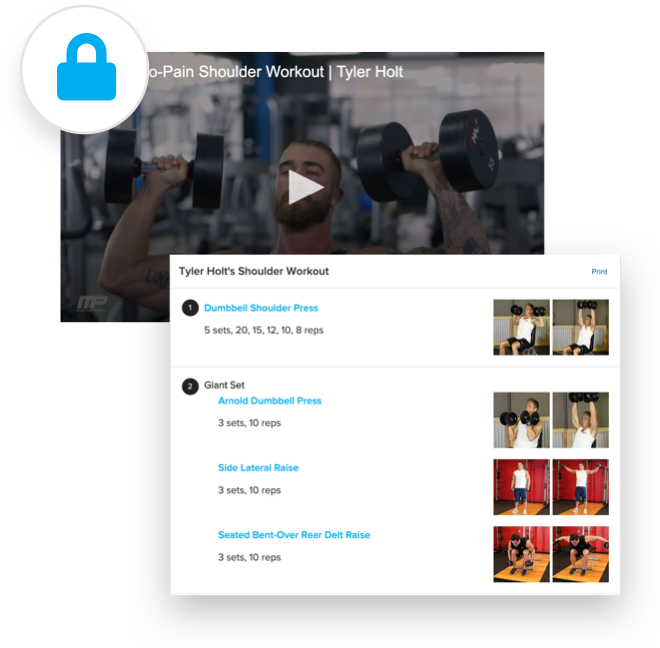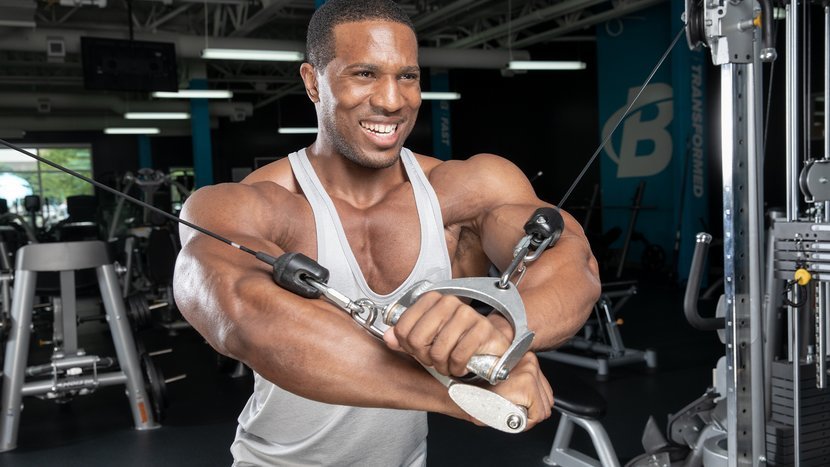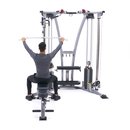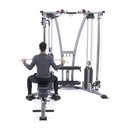Rarely does watching a 20-minute workout feel so captivating, but listening to IFBB pro Branch Warren discuss his training, his career, and what it takes to be on top is an experience any past, present, or future bodybuilder should have.
This back workout is straightforward, but Warren's approach makes it special. Never content to leave anything in the tank, he pushes himself to the limit, and takes us along for the ride.

BodyFit
$6.99/month- 2,500+ expert-created single workouts
- 3,500+ how-to exercise videos
- Detailed workout instruction
- Step-by-step workout tips
- Training at gym or at home
- Access to Workout Plans
- Access to Bodyfit App
- Store Discounts
Already have a Bodybuilding.com account with BodyFit? Sign In

What comes with BodyFit?

- Instructional Videos
Don't risk doing a workout improperly! Avoid injury and keep your form in check with in-depth instructional videos.
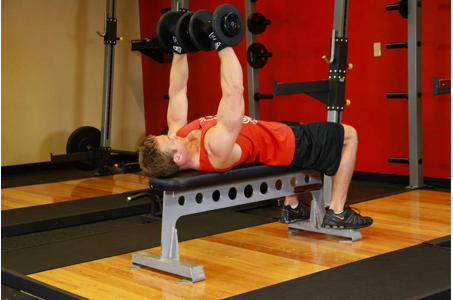
- How-to Images
View our enormous library of workout photos and see exactly how each exercise should be done before you give it a shot.
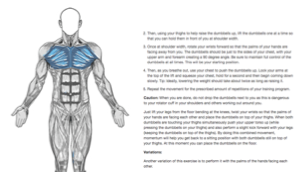
- Step-by-Step Instructions
Quickly read through our step-by-step directions to ensure you're doing each workout correctly the first time, every time.
Training to Failure
"I usually start with a lat pull-down," explains Warren. "It works the outside of your lats. I have to do that first to warm up before I start doing T-bar rows or one-armed rows or anything like that—real heavy stuff. I want to be warmed up."
Otherwise, Warren says he doesn't have a set program for back. "I train by how I feel," he explains. "Sets, reps—they kind of change around on a weekly basis based on how I feel. I always try to take sets to failure, dating back to when I was competing. If I had it in my mind I was going to do 10 reps, then I got to 10 and I could do 2 more, I'd do 2 more. I would train until I couldn't physically move the weight anymore."
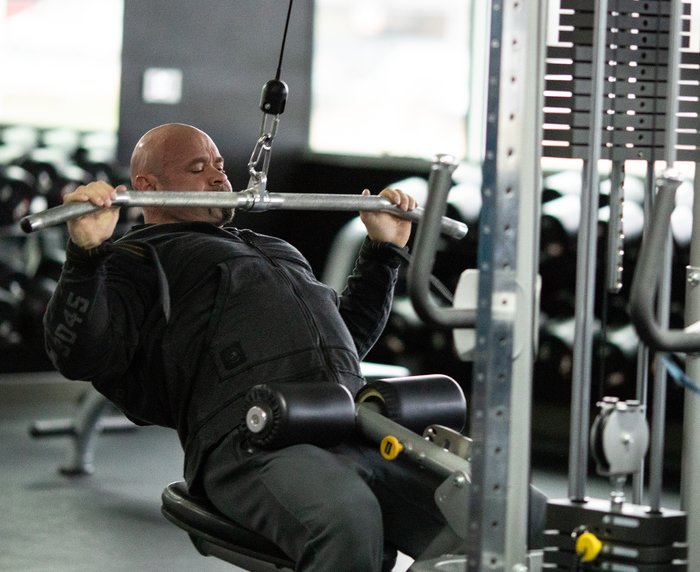
Sometimes, Warren goes beyond failure, using dropsets and stripping plates to keep the set going.
"Do as many as you can, pull some weight off, and keep going," he says. "That's a way to completely and thoroughly exhaust the muscle and force as much blood as possible in there. That will translate into to growth."
Bringing Up Weak Points
"Back was one of my weak points," explains Warren. "When I turned pro back in 2001, I trained for that show [NPC Nationals] for about nine months, and I didn't do legs one time in that whole prep."
As a long-time lifter and pro bodybuilder, Warren doesn't spare his physique a brutally honest critique.
"I was bottom heavy," he explains. "I knew that in order to win, I didn't need to just have the best legs on stage, I needed to have the best physique on stage. I wanted to be pro. So, I stopped training legs, focused on upper body, came in 18 pounds heavier from my previous show, and I won. That 18 pounds? That was all from the waist up."
After turning pro, Warren didn't jump right back into competing. He took time off, because he still felt his physique wasn't where it needed to be. He still had weak points he needed to bring up, namely, shoulders and back.
"Shoulders establish your whole symmetry," explains Warren. "Especially having the kind of quads and calves that I had—if you're not wide up top, if you don't have broad shoulders, you're not going to look right. And if you don't have good symmetry, then forget about being a pro."
When considering whether being a professional bodybuilder boils down to genetics, good symmetry, or just dumb luck, Warren steps back and looks at the big picture.
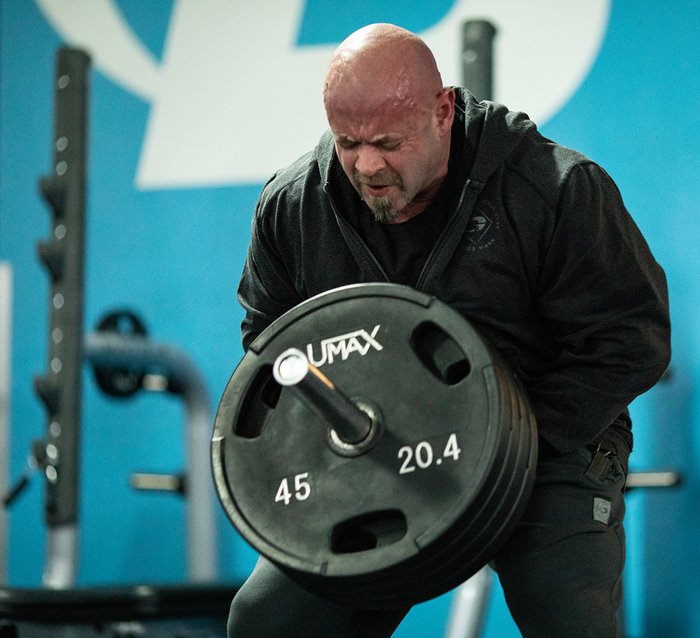
"You know, I always focus on all the things I can control," he says. "Training is definitely within your control. I've done these crazy, crazy workouts for years and years, and slowly but surely, my back came up and I started winning the big shows.
"That's why I push myself so hard in the gym. I knew if I could out-work all my contemporaries, eventually I could beat them onstage. There wasn't anyone out there I didn't beat at one time or another. I beat guys I had no business beating. Genetically, they were far superior. I just wanted it more."
Finding a Deeper Motivation
But is wanting it more all it takes to push yourself?
"People always ask me, 'How do you train so hard, so consistently like that time and time again,'" Warren says. "My answer was always that I want to win. And that was true. But now that I'm not competing, it's hard to push myself to that level. Being onstage, I never wanted to lose a competition. Somehow, that worked for me."
Never wanting to lose, always wanting to win—these are familiar desires for every bodybuilder.
"Off-season, I remember trying to eat everything I could because I was trying to grow," says Warren. "I'd be up until 1 a.m. trying to finish my food. Just cussing my food, chewing it up, drinking a glass of water, just trying to swallow it and take another bite. I did that for years.
"Then, pre-contest, you're eating seven times a day but you'll feel like you're starving. You know, I'd get up at 3 or 4 in the morning to do my cardio just so I could eat breakfast."
Warren's motto for bodybuilding glory is simple: Train smart. There ain't no shortcuts.
"If you don't have it, there's no drug, no magic pill, no secret program that's going to give it to you," he explains. "Just hard, hard work. And you've got to eat right. Eating is probably 70 percent of the equation. The other 30 percent happens in the gym.
"Nutrition involves proper supplementation and proper food. That's the hard part, because you have to do it day in and day out. And if you're trying to be a top bodybuilder, it's going to take many years. You're looking at a decade-long investment of your life and time and hard work, and maybe—if you have what it takes—you'll get there. For those chosen few that have it."
Life After Competing
No longer competing, Warren has modified his relentless approach.
"These days, I still train," he explains. "I always will train, as long as I'm physically capable of training, because I love it.
"I still train hard, but I'll be the first to tell you I don't train at that next level that I did for so long. There's no point in doing so. Number one, I don't want to get injured. And number two, I'm not stepping onstage anymore, and without that motivation, it's hard to find that extra gear."
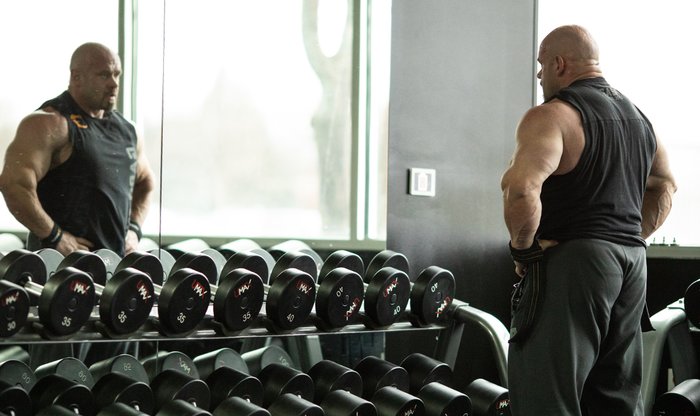
Simply put, Warren's goals have shifted: "Now, I want to be in shape for life," he says. "I love to hunt, I love the mountains—and when you're trying to crawl through the mountains at 275 pounds—more than 300 with your gear—it kicks your ass.
"I've lost some weight, but I'm still training, still in shape. I'm incorporating some different types of training and some fun stuff, so I feel great physically. I feel better than I've felt in a long time."
What's changed the most in his approach is his nutrition.
"I think the main thing is I don't eat as much," says Warren. "I was eating six meals a day, sometimes seven, depending on my training program. Now I eat four meals a day, so not quite as many calories. Eating seven meals a day, if you've never done it, is a job in itself.
"I weigh about what I used to weigh onstage. And I don't look like that [chuckles]. That being said, I still want to train, I still want to be big, I still take pride in my training, and I enjoy it. Especially now with a family, businesses—that hour, hour and a half, each day is my time. It's usually about the only time of day that belongs to me. I cherish that. It's one thing in life I love to do and always will."
Changing Your Approach
If his approach to food has changed, have Warren's workouts also changed?
"I've actually branched out and started to do some other types of training back home," he says. "We do what we call a 'run and gun.' We flip tires, we carry sandbags, we box—all kinds of stuff.
"I don't want to say it's a CrossFit type of workout, but it's a physical fitness type of workout. There's running incorporated into it."
Thinking about his busy life and career, Warren offers this advice to his younger peers: "I've seen so many of these guys and girls say, 'I can't work, I'm getting ready for a competition,' I've worked my entire life. Even when I was [the] number-two [-ranked bodybuilder] in the world, I still worked. I had a business, I worked—no matter how well I did—because I knew one day, this would be over.
"I was very blessed to have a very long career, but all it takes is one injury to end your career."
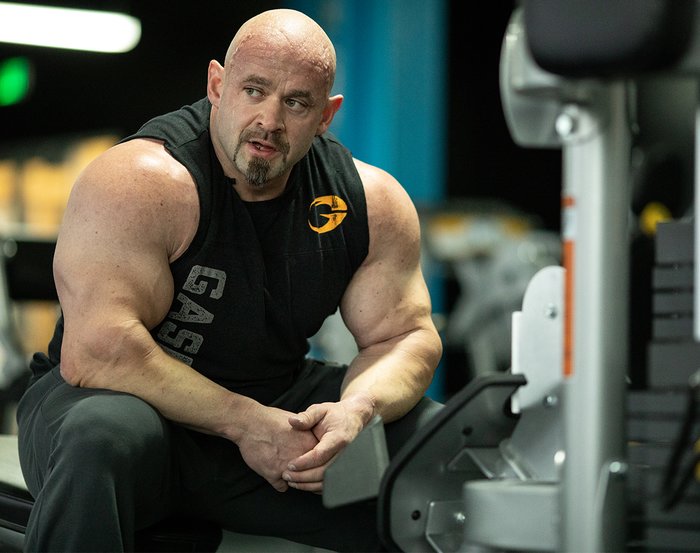
Train Because You Love It
Though his pro bodybuilding career is behind him, Warren still has sage advice for the iron athlete of today.
"There are a lot of opportunities out there, through social media, for fitness athletes," he acknowledges. "But even if you're a world-class athlete, you only have a finite amount of time to be on top.
"Be smart, train smart, don't injure yourself. There's no magic formula, no magic pills. Just hard work and dedication.
"If you get there, it's worth it. I had a 16-year pro career, and I had a blast. I had the time of my life. It was my dream, and I got to live my dream. So, it can be done. But it just takes time and you've got to be realistic.
"Do this because you love doing it. I never trained for fame or for money. I trained because I loved doing it."

